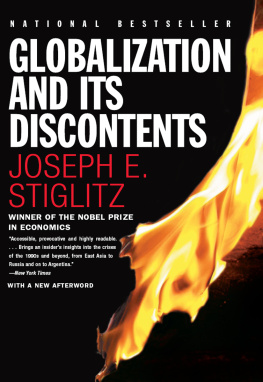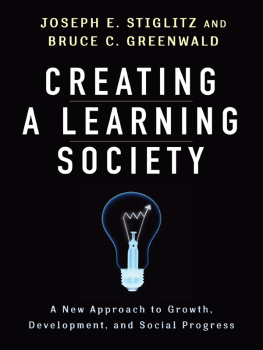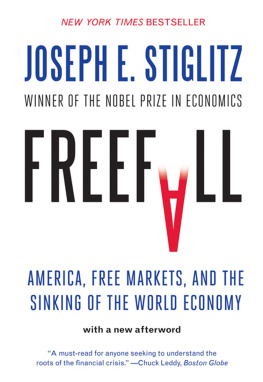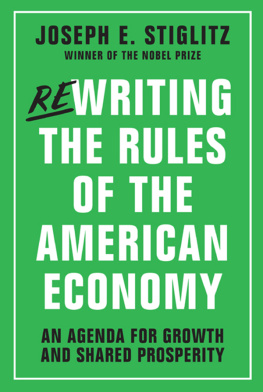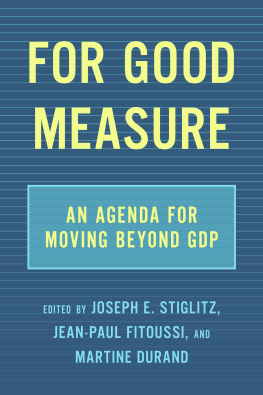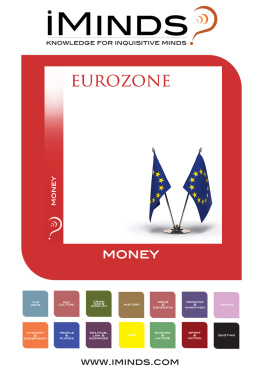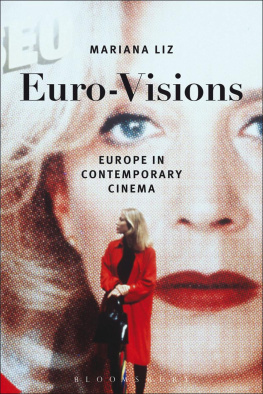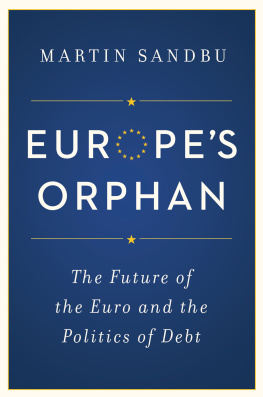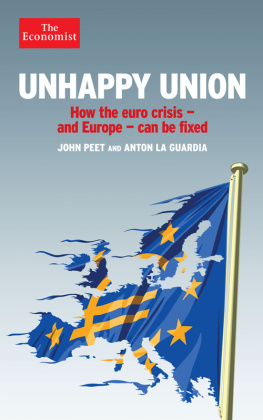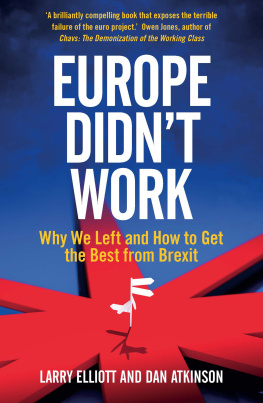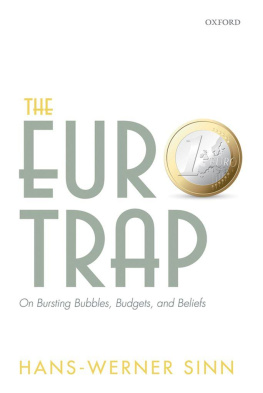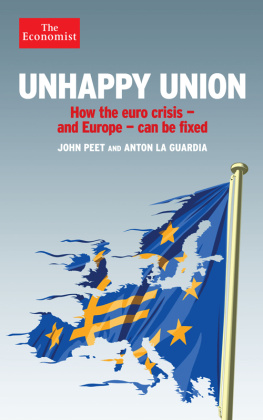
To the future of Europe and the European project upon which so much depends, in the hope that this book may contribute to policies ensuring its prosperity and promoting its solidarity.
CONTENTS
The world has been bombarded with depressing news from Europe. Greece is in depression, with half of its youth unemployed. The extreme right has made large gains in France. In Catalonia, the region surrounding Barcelona, a majority of those elected to the regional parliament support independence from Spain. As this book goes to press, large parts of Europe face a lost decade, with GDP per capita lower than it was before the global financial crisis.
Even what Europe celebrates as a success signifies a failure: Spains unemployment rate has fallen from 26 percent in 2013 to 20 percent at the beginning of 2016. But nearly one out of two youth remain unemployed, and the unemployment rate would be even higher if so many of its most talented young people had not left the country to look for jobs elsewhere.
What has happened? With advances in economic science, arent we supposed to understand better how to manage the economy? Indeed, Nobel Prizewinning economist Robert Lucas declared in his 2003 presidential address to the American Economic Association that the central problem of depression prevention has been solved. rapid growth, the benefits of which are shared widely, with low unemployment. What has happened in Europe is the opposite.
There is a simple answer to this apparent puzzle: a fatal decision, in 1992, to adopt a single currency, without providing for the institutions that would make it work. Good currency arrangements cannot ensure prosperity, but flawed currency arrangements can lead to recessions and depressions. And among the kinds of currency arrangements that have long been associated with recessions and depressions are currency pegs, where the value of one countrys currency is fixed relative to another or relative to a commodity.
Americas depression at the end of the 19th century was linked to the gold standard, where every country pegged its currencys value to gold and, therefore, implicitly to each others currencies: with no new large discoveries of gold, its scarcity was leading to the fall of prices of ordinary goods in terms of goldto what we call today deflation.
So, too, the gold standard is widely blamed for its role in deepening and prolonging the Great Depression. Those countries that abandoned the gold standard early recovered more quickly.
In spite of this history, Europe decided to tie itself together with a single currencycreating within Europe the same kind of rigidity that the gold standard had inflicted on the world. The gold standard failed, and, other than a few people known as gold bugs, no one wants to see it restored.
Europe need not be crucified on the cross of the eurothe euro can work. The key reforms that are needed are in the structure of the currency union itself, not in the economies of the individual countries. Whether there is enough political cohesion, enough solidarity, for these reforms to be adopted remains in question. In the absence of reform, an amicable divorce would be far preferable to the current approach of muddling through. I will show how the split-up can be best managed.
In 2015, the 28-member European Union was the second largest economy in the worldwith an estimated 507.4 million citizens and a GDP of $16.2 trillion, slightly smaller than the United States. and three years earlier the countries of the eurozone had pegged their values relative to each other. In 2008 the region was pulled, along with the rest of the world, into recession. Today the United States has largely recoveredan anemic and belated recovery, but a recovery nonethelesswhile Europe, and especially the eurozone, remains mired in stagnation.
This failure is important for the entire world, not just for those countries in what has come to be called the eurozone. Of course, it is especially dire for those living in the crisis countries, many of which remain in depression. In our globalized world, anything that leads to stagnation in such an important part of the global economy hurts everyone.
Sometimes, as the example of Alexis de Tocquevilles Democracy in America so clearly illustrated, an outsider can give a more accurate and dispassionate analysis of culture and politics than those who are more directly entangled in ongoing events. The same is true, to some degree, in economics. I have been traveling to Europe since 1959in recent decades, multiple times a yearand spent six years teaching and studying there. I have worked closely with many of the European governments (mostly in the center-left, though not infrequently with the center-right). As the 2008 global financial crisis and the euro crisis brewed and broke out, I interacted closely with several of the crisis countries (serving on an advisory council for Spains former prime minister Jos Luis Rodrguez Zapatero and as a long-term friend and adviser to Greeces former prime minister George Papandreou). I saw firsthand what was happening within the crisis countries and the councils of the eurozone that were forging policies in response.
As an economist, the euro experiment has been fascinating. Economists dont get to do laboratory experiments. We have to test our ideas with experiments that natureor politicsthrows up. The euro, I believe, has taught us a lot. It was conceived with a mixture of flawed economics and ideologies. It was a system that could not work for longby the time of the Great Recession, its flaws were exposed for all to see. I believe that the underlying deficiencies had been evident from the start for anyone willing to look. These deficiencies had contributed to a buildup of imbalances that played a central role in the unfolding crises and will take years to overcome.
This experiment was especially important for me, since I had been thinking and writing about economic integration for years, and especially since I had served as economic adviser to President Bill Clinton, as chairman of his Council of Economic Advisers, in the 1990s. We worked on opening up borders for trade between the United States, Canada, and Mexico through NAFTA, the North American Free Trade Agreement. We worked, too, on creating the World Trade Organization, launched in 1995, the beginning of an international rule of law governing trade. NAFTA, launched in 1994, was not as ambitious as the European Union, which allows free mobility of workers across borders. It was much less ambitious than the eurozonenone of the three countries shares a currency. But even this limited integration posed many problems. Most importantly, it became clear that the name free trade agreement was itself a matter of deceptive advertising: it was really a managed trade agreement, managed especially for special corporate interests, particularly in the United States. It was then that I started to become sensitive to the consequences of the disparity between economic and political integration, and to the consequences of international agreements made by leadersas well-intentioned as they might bein the context of far-from-perfect democratic processes.
I went from working with President Clinton to serving as chief economist of the World Bank. Here, I was confronted with a new set of issues in economic integration that was out of kilter with political integration. I saw our sister institution, the International Monetary Fund (IMF), try to impose what it (and other donors) viewed as good economic policies on the countries needing its assistance. Their views were wrongsometimes very wrongand the policies the IMF imposed often led to recessions and depressions. I grappled with trying to understand these failures and why the institution did what it did.
Next page

